Family & Friends Remember Alfred ‘Ali’ Tulone, Who They Say They Lost Twice In His Battle With Schizophrenia
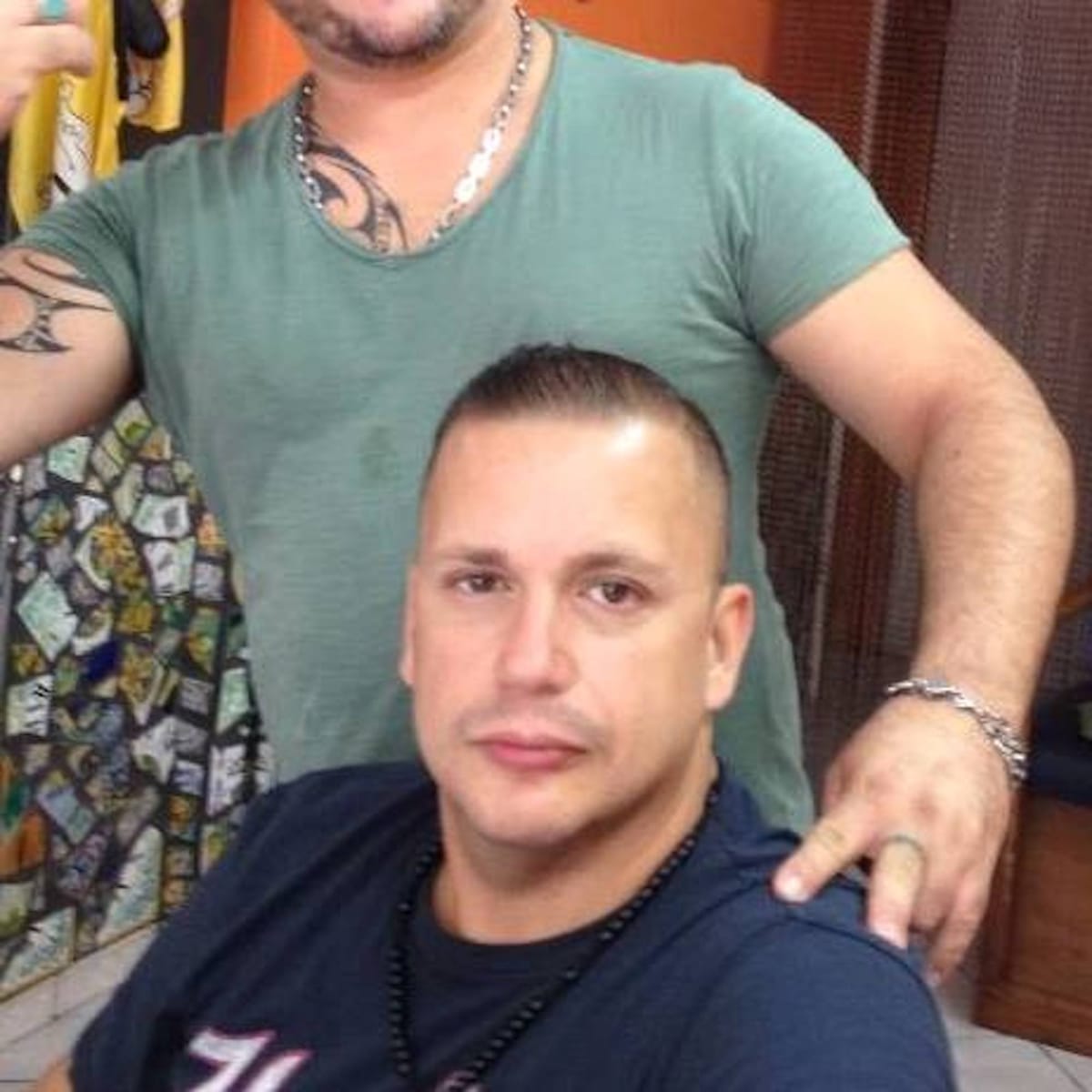
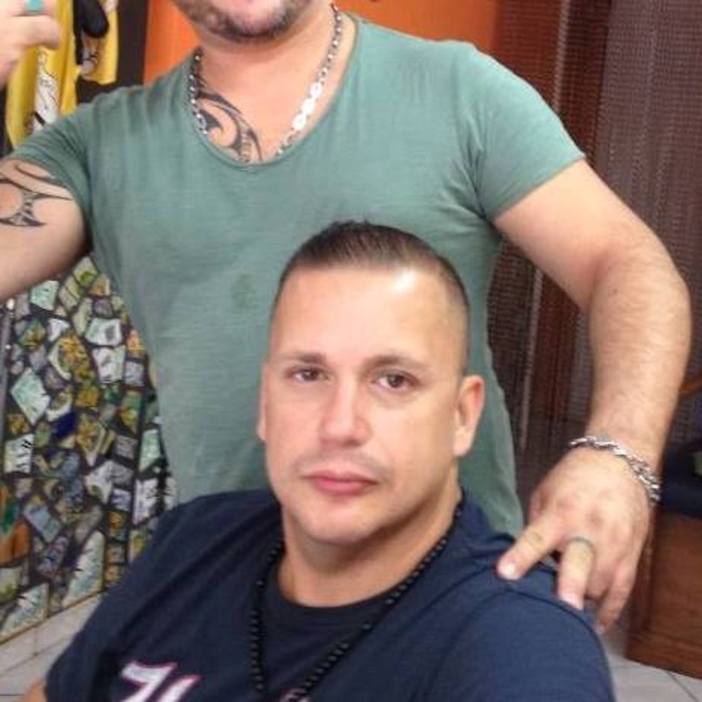
“It was like losing him a second time.”
That’s how the friends of Alfred “Ali” Tulone described the feeling at a packed Cusimano & Russo Funeral Home (2005 West 6th Street) on Tuesday, December 16. Over 80 mourners paid respects to Ali – the 39-year-old man who drowned in Gravesend Bay in an apparent suicide earlier this month. People filled two chapels, spilling out into the lobby. Several guests hadn’t been home to Bensonhurst in years, driving in from as far as Virginia.
Alfred Tulone was one of three children born to Nina and Salvatore Tulone of 76th Street. After his parents divorced in 1992, Ali naturally fell into the role of father figure for his older sister Maria and little brother Anthony.
“He guided us in the right direction, and he gave us the strength to get through this,” Anthony, now 34, told us.
Everyone we spoke to who had grown up with Ali described him the same way: funny, easygoing, athletic, popular. He always smelled good, wore a watch, and had his hair perfectly gelled. At the wake, friends and family reminisced about Ali’s meticulous style – “GQ,” they used to call him fondly.
Back then, there was a clique of about 40 of them, neighborhood kids from 76th Street who used to spend time on the Tulones’ porch. They would play basketball and handball, throw block parties, give each other haircuts, or just hang out. Their mothers were also friends, and the kids felt comfortable popping over to each other’s houses for dinner.
“It was one big happy family of all ages, it’s something that doesn’t go on anymore,” Anthony said.
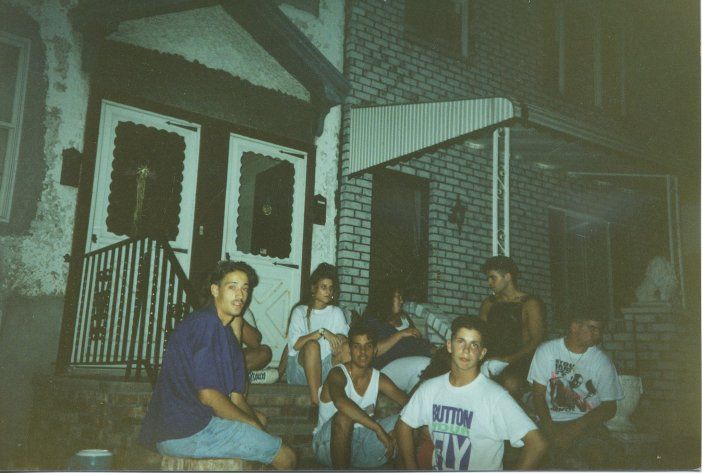
The first time they lost Ali was in 1991, when he was 16 years old. During a night out on the town, a confrontation occurred and Ali suffered a severe blow to his face. Many of his friends said they are still traumatized about that night and declined to talk about it.
“We all took it very bad when he had the accident. I remember teenage boys crying when it happened,” said Danielle Deloughry, 38, who dated Ali when they were teens.
After months of surgery, followed by rehab, followed by a trip to Sicily to see his father, Ali’s friends – all 40 of them – waited for his return at the airport excitedly. When he emerged, immediately they knew something was wrong. Though he had a metal plate put in his cheek and stitches up the side of his head, physically he looked remarkably like the handsome boy they had grown up with. But the person in front of them was not Ali; it was someone morose and withdrawn.
“His whole demeanor changed,” his brother told us.
The next time Ali’s boisterous group of friends tried take him out to a club, they turned around and saw that he had disappeared. He started disappearing a lot. Initially, he was diagnosed with bipolar disorder. Later, as his paranoia worsened, the diagnosis became schizophrenia.
“He didn’t talk to me about it, but he had severe paranoia, people were following him. He thought everything was a conspiracy,” said Deloughry.
And yet, parts of the old Ali were still there. He was always impeccably dressed and obsessed with his personal hygiene. He was selfless: he donated his limited disability insurance to St. Jude Children’s Research Hospital, and frequently gave dollars to homeless people on 86th Street. Friends and family told us he was the kind of person who “would give you the shirt off his back.” He still cracked jokes and retained a sense of humor.
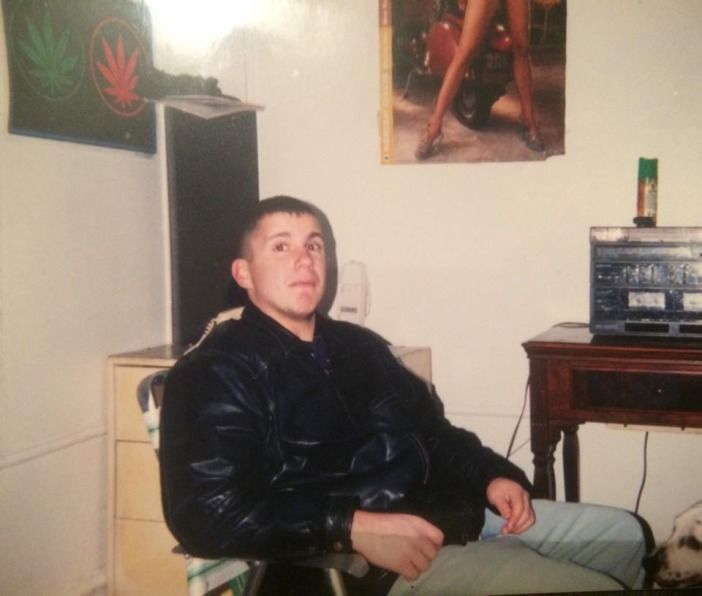
Schizophrenia is lifelong condition, but symptoms like hallucinations and delusions typically develop between the teen years and the mid-20s. Sometimes, as in Ali’s case, a stressful event can trigger the onset of symptoms. The disease is also degenerative, worsening with time, and if left untreated, it can result in loss of grey matter in the brain. Though the worst symptoms, like delusions, can be managed with medication, the patient may develop a tolerance and the prescriptions must be tweaked to stay effective.
Anthony said he never witnessed a drastic change in Ali the way their friends did. Determined to get him help, Anthony and his mother Nina went on the journey with him. They accompanied him to hospital wards, monitored his medication intake, talked him down from the ledge when he was suicidal. On several occasions, Anthony said he saved his brother’s life. In almost every photo of Ali as an adult, Anthony is right there behind him.
“I was in it with him,” Anthony said. “I always felt he had the power to overcome everything.”
Ali tried to have a normal life, but he found it difficult to hold down a job or choose a career path. Records show that he attended Kingsborough Community College in 1994, studying computer science, but then dropped out. He returned to the college in 1999, this time for mental health, and quit after a year this time. After that, he attended a vocational school. He also met regularly with his therapist at South Beach Psychiatric Center, becoming so close with staff members, that several of them attended his funeral.
Some days were better than others. On good ones, Ali would visit his therapist and then take the D train into the city to have lunch with his brother. After that he might do some shopping in near Herald Square, and then ride back to Bay Ridge to pick up a body wash at DII on 4th Avenue, his favorite store. Then he would hit the gym before dinner.
On other days, Ali wouldn’t leave the house. “There were times when he was questioning the food he was eating, he would make you take a bite first,” Anthony said.
Most of the time Ali seemed to make an effort not to burden family members with these thoughts, but in the last year, Ali took a turn for the worse, and they began to fear for their safety. Concerned relatives suggested the Tulones find other living arrangements for Ali, but Nina wouldn’t hear of it. Preventing Ali from hurting himself or others soon became a full-time job.
“He became very dark, very agitated, very angry,” Anthony said. “He did things that he never did in his life. [He would] curse at my mother, curse my sister, threaten her, and threaten me. He was very erratic and on edge. Not sleeping, standing over us while we were sleeping. We were all worried what his next move would be.”
In 2014, Ali was hospitalized six times, his brother said. A particularly scary incident occurred on October 27 when, in frustration, Ali threw a candle on the floor and lunged at Nina. By October 29, Ali was checked into Maimonides Medical Center. When he came home a month later, he was not better.
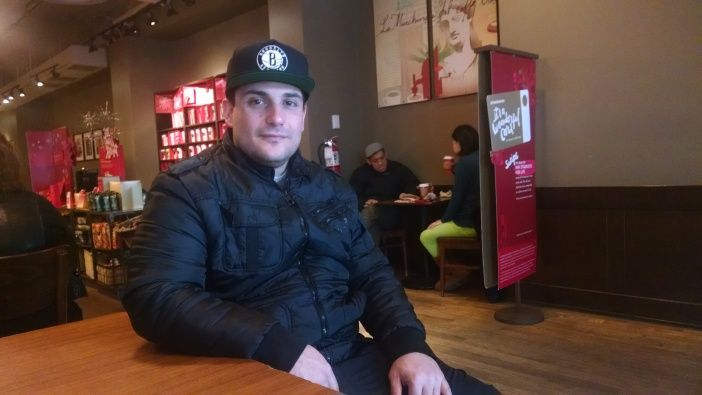
It is estimated that between five and 15 percent of people with schizophrenia commit suicide. Psychologist and author Andrew Solomon writes in Far from the Tree, that when they do, their families sometimes find that death is easier to come to terms with than the trauma of living with a schizophrenic.
The last time Ali saw his family was on December 11. At dinner, Anthony asked his brother what he wanted for Christmas. Ali asked for a television for his room so that he could spend more time alone.
At around 5:50pm, Ali excused himself from the dinner table, grabbing a pack of his mother’s cigarettes, his brother recalled. His mother called out, “Do you need a key?” and Ali’s last words to her were, “Nah, I won’t need it.”
The next day, detectives knocked on the family’s door. They had found Ali.
Anthony said that while his emotions still fluctuate between anger and sadness, he believes it was Ali’s time to go.
“He’s at peace now,” Anthony said. “That’s why I’m able to sit across from you talking about this, without being a mess. It’s not easy burying a brother – especially an older brother – before the holidays.”
The incredible turnout at his brother’s funeral inspired Anthony to turn his brother’s death into something positive. On April 18, Ali’s 40th birthday, he wants to gather the old crew again – this time for a happy occasion – and throw a party in his brother’s honor, to celebrate the side of Ali that was becoming increasing scarce toward the end of his life. It will be called “Ali Night.” And he hopes it will help launch a long-overdue conversation about schizophrenia and mental illness in Brooklyn’s Italian American community.
“It’s a close-knit neighborhood and people are ashamed [of mental health issues] – they hide it,” he said. “My brother didn’t hide it; there’s no reason for anyone else to hide it. ‘Don’t be scared, you’re just like anybody else.’ That’s my message: You’re still a loved one, you’re still a person, you can still live your life normally.”
After high school, the group of friends from 76th Street splintered as they pursued careers, started families, or moved away. Anthony noted that his brother – who often obsessed about those early days before the accident – was always trying to organize a reunion, but it it took a tragedy to bring everyone back together. Anthony said he believes that “Ali Night” is the best way to honor his brother’s wishes.
“I want everyone out again. Just for one night,” Anthony said. “And if it’s a success, we’ll do it again.”



